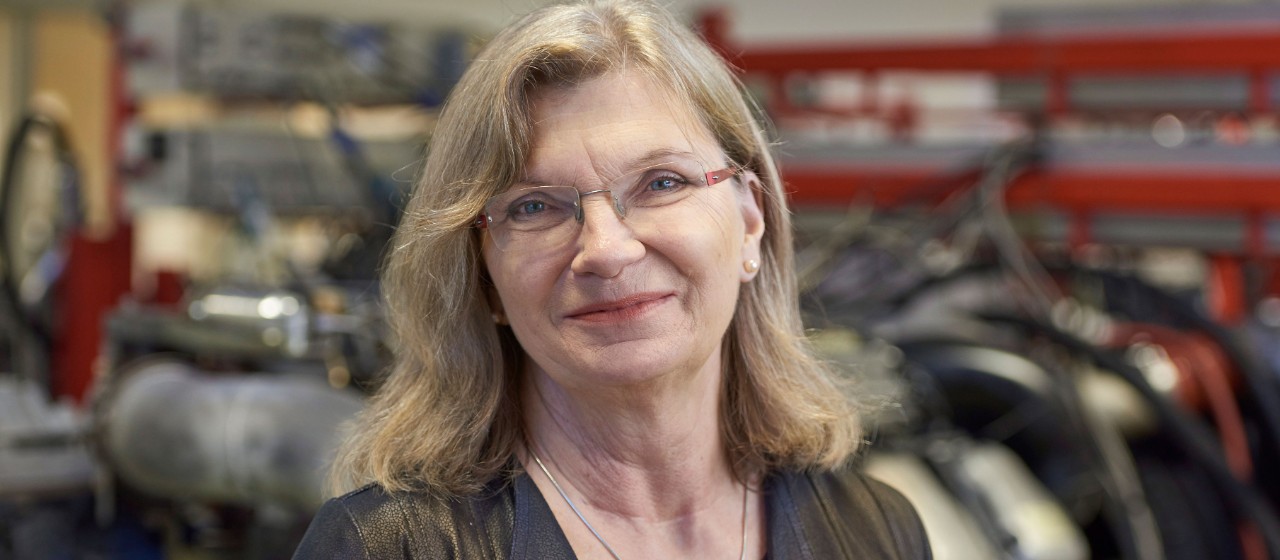
Setting fuel standards
29 MARCH 2018
Eva Iverfeldt combines her work as Scania’s Technical Manager for Fuels with chairing the Swedish fuel standards committee. “If we don’t have standardised fuels, there won’t be optimised engines,” she says.
Renewable fuels are key to Scania’s mission of driving the shift towards sustainable transport. The company has pioneered the use of alternative fuel types over the last 30 years, and today has the broadest range of alternative fuel-enabled vehicles on the market. But before fuels can be used they have to be standardised and agreed upon first.
In Sweden, that’s the job of the Swedish fuel standards committee, overseen by the Swedish Standards Institute (SIS) and made up of almost 30 experts from transport authorities, fuel suppliers, plus vehicle and engine manufacturers like Scania. Since the start of 2018, the fuel standards committee’s new Chairperson has been Scania employee Eva Iverfeldt.
There are health, economic and engine performance aspects to fuel standards
“The fuel standards committee’s main task is to see how we can specify the requirements for the introduction of renewable fuels,” explains Iverfeldt. “Either that is within existing fuels, by putting more renewables into diesel or gasoline, or to make their own specification. We need to be able to optimise both, so we need these common specifications, or fuel standards.”
Performance, public health and sustainability reasons are important too.
“A fuel is regulated by the authorities, just like they do with health, for example,” says Iverfeldt. “Then the fuels are standardised for us to optimise for an engine. If we don’t push standards for renewable fuels, there won’t be any agreed fuels, so it’s really important to have this specification that we have agreed upon. With climate change and health issues we now need a rapid introduction of new standards.”
There’s life in the combustion engine yet
Despite the growing presence of electrification in transport, industry experts believe that the combustion engine still has a significant role to play, and Iverfeldt agrees:
“Other technologies are developing all the time, but combustion engines are still going to be important for a while yet, so we’d better make it possible to run the engines on renewable fuels.”
Fuel standards are key to the transport industry addressing its legacy
Iverfeldt has only been Chair of the Swedish fuel standards committee for a few months, but has been a member for eight years. The committee’s work and her regular meetings with European colleagues also help to inform some of Iverfeldt’s work as Technical Manager for Fuels, a job she has done for the last six of her 20 years at Scania.
The CEO and President of Scania, Henrik Henriksson, has often spoken about the company’s determination to become part of the solution by providing clean and safe transport solutions. Fuel standards have a key role to play. As Eva Iverfeldt says, “If we don’t have standardised fuels, there won’t be optimised engines.”